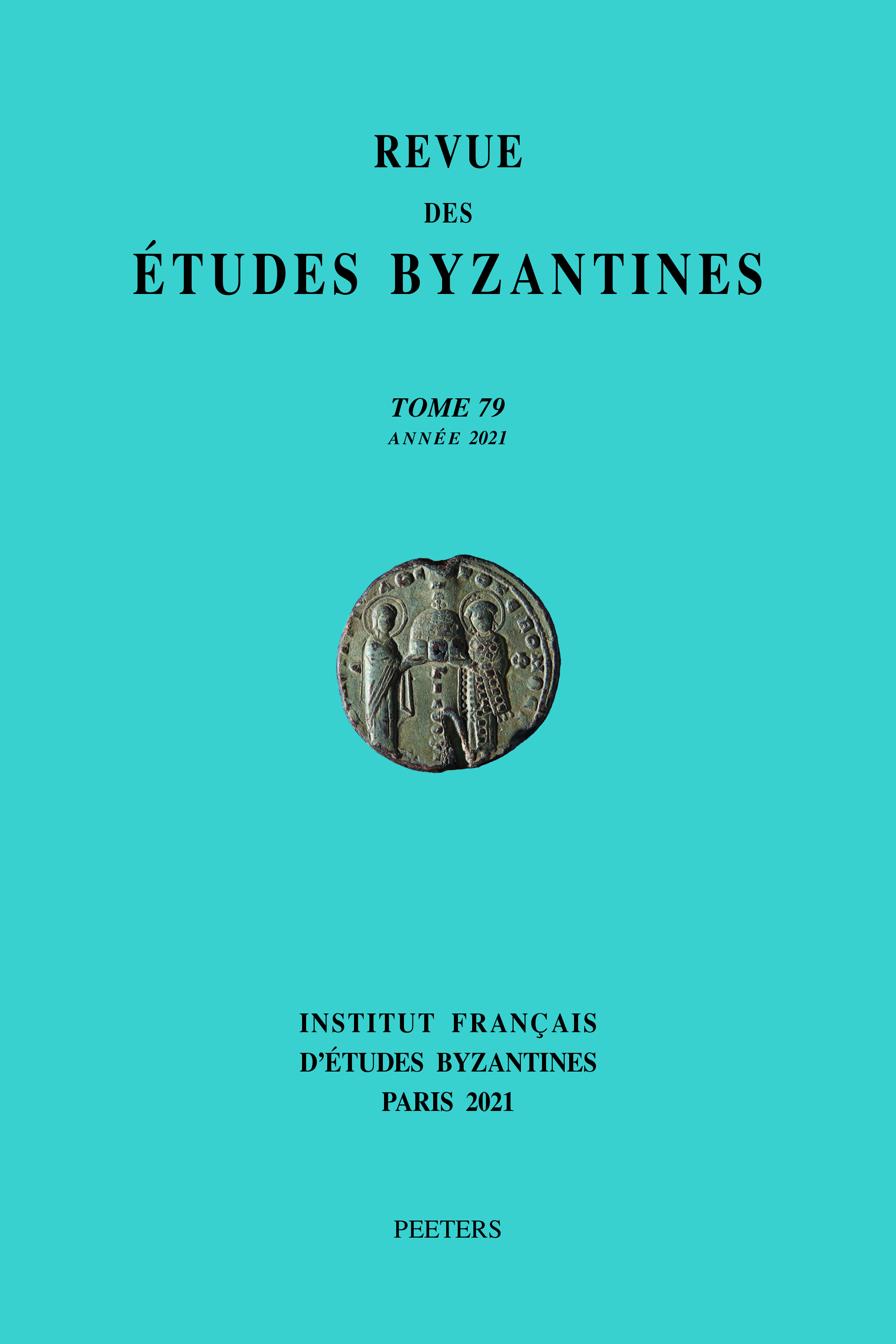 previous article in this issue previous article in this issue | next article in this issue  |

Preview first page |
Document Details : Title: Contextualizing Theodore Metochites and his Refoundation of the Chora Author(s): SMYRLIS, Kostis Journal: Revue des Études Byzantines Volume: 80 Date: 2022 Pages: 69-111 DOI: 10.2143/REB.80.0.3290897 Abstract : This paper proposes a re-examination of the career of Theodore Metochites and of his foundation, the monastery of the Chora, based on known material as well as hitherto unused sources, namely a letter collection that is here ascribed to him and some monastic documents. One of these documents allows us to redate the completion of the Chora and Metochites’s promotion to megas logothetes to before 1317, events until now dated to 1321 on the basis of Nikephoros Gregoras’s History. The paper studies Metochites as an official and a magnate, arguing that he was a loyal and overall efficient administrator and stressing the role of entrepreneurship in his enrichment. Monastic refoundations, including the Chora, were a key element of the imperial project to revive Constantinople. It is suggested that this task was delegated by the emperor to his high dignitaries who had to act as civic benefactors. Although Metochites was obliged to participate in this project because of his rank, the Chora gave him also the opportunity to reach the top of the hierarchy. L’article propose un réexamen de la carrière de Théodore Métochitès et de l’histoire de sa fondation, le monastère de Chôra, en se fondant sur des textes connus ainsi que sur des sources inexploitées, à savoir une collection de lettres qui lui est ici attribuée et certains documents monastiques. Un de ces documents nous permet de dater l’achèvement de Chôra et la promotion de Métochitès à la dignité de grand logothète d’avant 1317, événements qui étaient jusqu’ici datés de 1321 selon le témoignage de l’Histoire de Nicéphore Grégoras. L’article étudie le statut officiel et la fortune de Métochitès, et suggère qu’il était un administrateur loyal et plutôt habile, tout en soulignant ce que sa richesse devait à ses activités d’homme d’affaires. La refondation de monastères, comme celle de Chôra, était un élément essentiel du projet impérial visant à revivifier Constantinople. On peut faire l’hypothèse que cette tâche ait été confiée par l’empereur à ses hauts dignitaires, qui devaient agir comme des bienfaiteurs de la ville. Bien que Métochitès ait été, du fait de son rang, obligé de participer à ce projet, Chôra a aussi constitué pour lui une opportunité pour arriver au sommet de la hiérarchie. |
|


